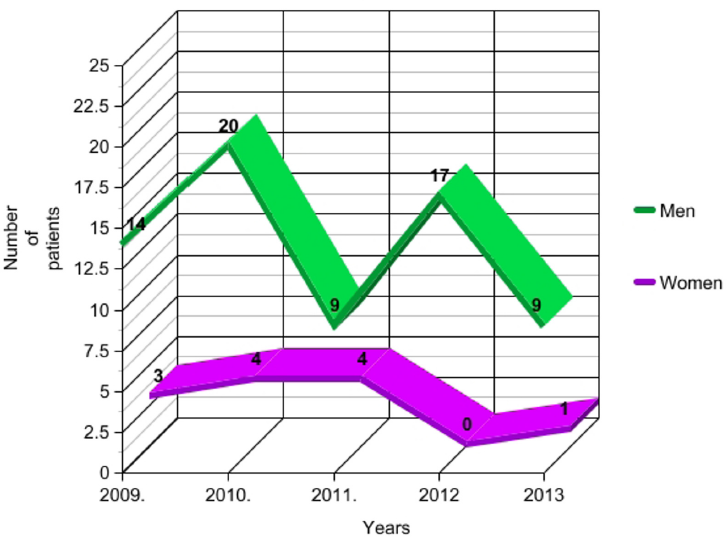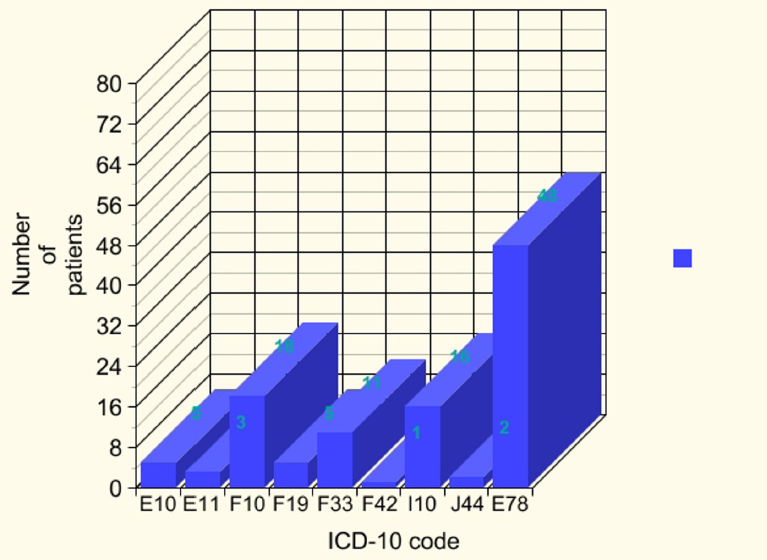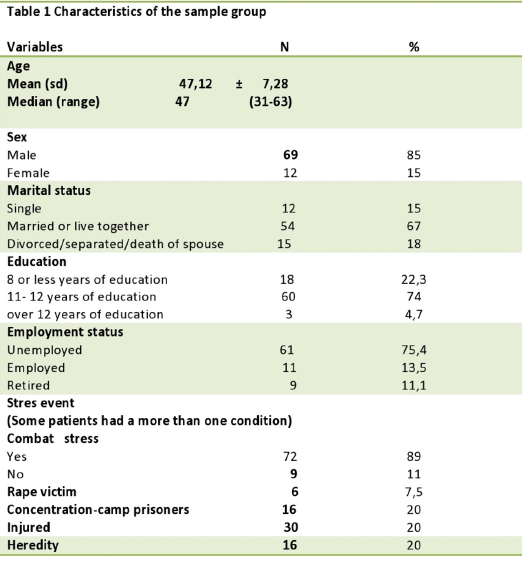No CrossRef data available.
Article contents
Psychosocial Characteristic of Patients Hospitalized for Enduring Personality Change After Catastrophic Experience (Icd-10-f62.0)
Published online by Cambridge University Press: 15 April 2020
Abstract
Enduring personality change after catastrophic experience is a diagnostic category in the ICD-10. This disorder is characterized by chronic course, long-standing problems in social and occupational functioning and disability.
To increase the understanding of the potential predictive factors of development F 62.0 symptoms.
We want to examine the psychosocial and health variables can be significant predictive factor for the development of this disease.
Our studyu sed a retrospective chart review conducted at the Psychiatric Hospital of Canton Sarajevo . The sample consisted of is 81 patients who was completed hospital treatment for enduring personality disorder between 1.1. 2009. and 31.12.2013. Basic demographic variables, psychiatric heredity and comorbidity diagnosed conditions, were extracted from the medical records.
A significant majority of the sample was male 85% (n = 69). The mean age was 47,12 ± 7,28 (range 31-63). Distribution by years is presented in Chart 1 Demographic information for patients is listed in Table 1 Other risk factors were having post-primary education (74%), unemployed status (75, 4%) previous combat stress (89%). Comorbid diseases are presented in the chart 2.
Our study found that the interaction of many psychosocial factors leading to the development F62.0. As previous studies have shown male gender, combat stres, unemployment can be significant predictive factor for the development of this disease.
Chart 1
The number of newly diagnosed patients with F62.0 per years

Chart 2
Comorbidity disease with F62.0


- Type
- Article: 0679
- Information
- European Psychiatry , Volume 30 , Issue S1: Abstracts of the 23rd European Congress of Psychiatry , March 2015 , pp. 1 - 3
- Copyright
- Copyright © European Psychiatric Association 2015





Comments
No Comments have been published for this article.